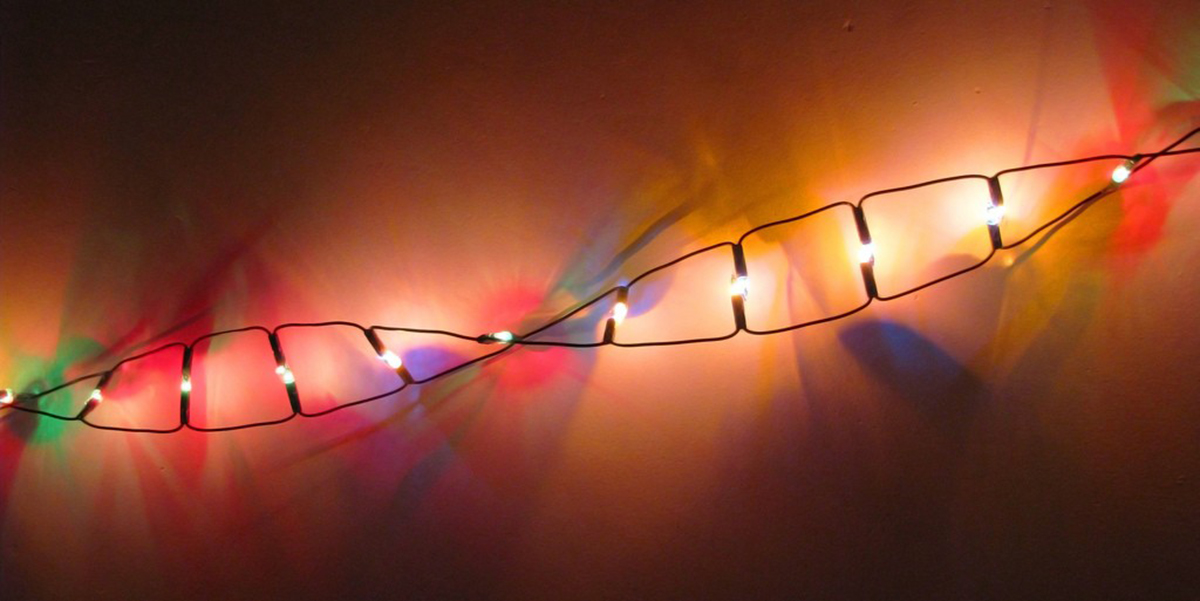Table of Contents
DNA methylation is not the only epigenetic mechanism that is affected by diet. Histone modification is a different way of inducing changes in the expression of our genes.

Histone modification: loosed genes, tighten genes
Histones are like the reels onto which DNA is rolled and packed. In order for a gene to express, DNA has to be unrolled in a specific region in order to be exposed to the machinery that activates gene expression. When the expression of a gene needs to be switched off, this same region rolls back again and hides the gene, so that it is not expressed.
Histone acetylation specifically might be related to inflammation. Resveratrol, an antioxidant substance that is present in the skin of red grapes, is a great source of acetyl groups.
This is important because chronic inflammation is a major mechanism of cellular damage and has been related to the development of neurodegenerative diseases, such as Alzheimer’s and Parkinson’s disease.
Epigenetic changes and disease
Cancer and inflammation are only a few medical conditions that are related to epigenetic changes, because diet influences gene expression since we are in the womb.
Mom’s diet also alters the expression of the baby’s genes and can cause the development of certain illnesses at the time the baby is born, or later in life.
For example, some studies in rats have found that a maternal diet high in fats can increase the amount of fat tissue in the baby and cause alterations in the metabolism of glucose, increasing the risk of the baby to suffer from obesity. A maternal diet low in protein, on the other hand, can affect the baby’s growth and can increase the risk of hypertension.
Dad’s diet can also affect the baby’s development, although mechanisms are different to those seen regarding the mom’s diet, and are not that well understood.
What should we eat, then?
It is important to note that genetic differences among us can also affect the way we respond to what we eat.
So, even when it has been shown that certain food components can affect specific genes, this might not be true or might be different from person to person, depending on their genetic background.
See Also: Genetics Is Not the Only Secret of Skinny People
Currently, a lot of research is being done in the interaction of food components and our genes, but this is not an easy task to do. The ultimate goal of scientists is to be able to unveil these interactions, so that they have the tools to design personalized diets that contain the exact nutritional compounds necessary to help you and me to improve our health, delay the aging process and prevent the development of chronic diseases, such as diabetes, neurodegenerative disorders, cardiovascular diseases and cancer.
Until this happens, at least we know that we certainly are what we eat. We have to make sure that we are getting all the nutrients we need to live a long and healthy life.
- CHOI, S. W. & FRISO, S. 2010. Epigenetics: A New Bridge between Nutrition and Health. Adv Nutr, 1, 8-16
- JANG, H. & SERRA, C. 2014. Nutrition, epigenetics, and diseases. Clin Nutr Res, 3, 1-8
- VICKERS, M. H. 2014. Early life nutrition, epigenetics and programming of later life disease. Nutrients, 6, 2165-78.
- Photo courtesy of MarLeah Cole by Flickr : www.flickr.com/photos/marleahjoy/13708009325
- Photo courtesy of Stuart Caie by Flickr : www.flickr.com/photos/kyz/3340435836


Your thoughts on this